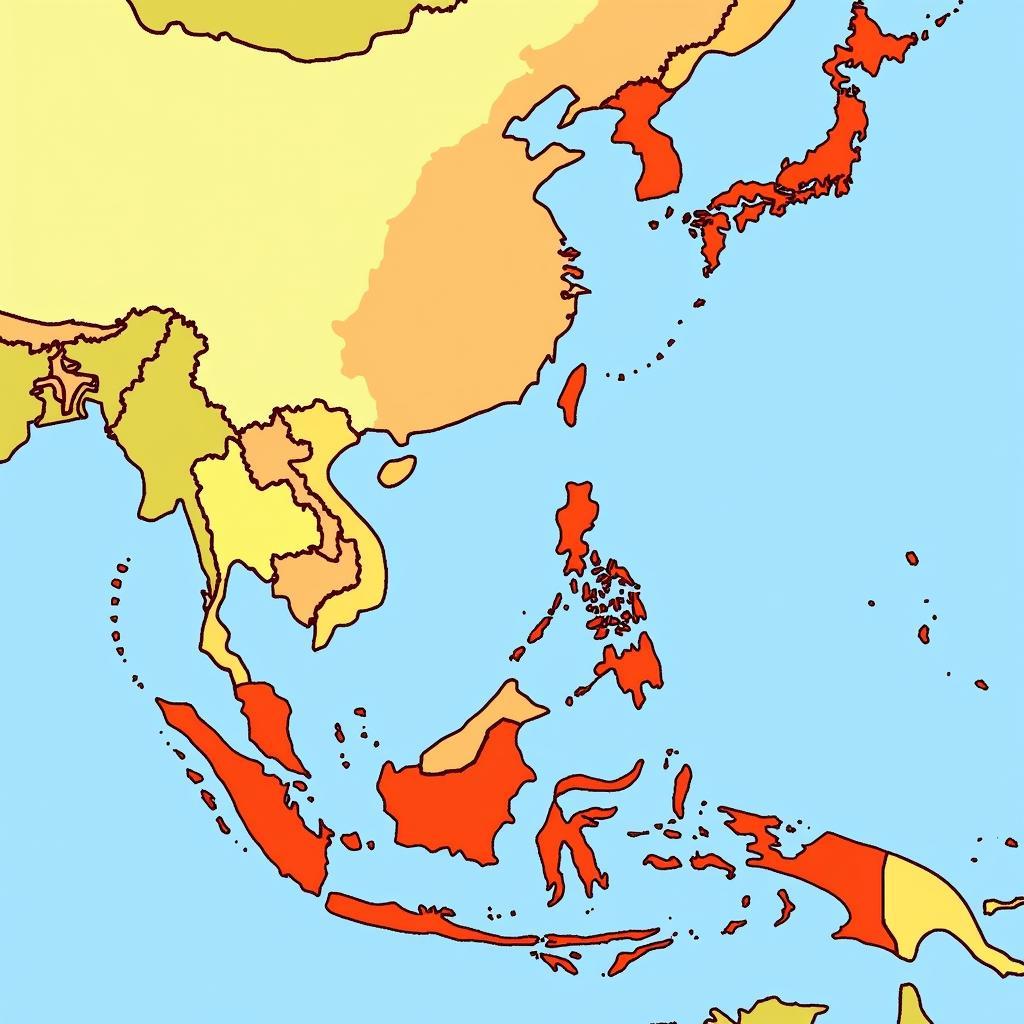Aung San Suu Kyi, the name evokes a spectrum of emotions and opinions, particularly when juxtaposed with the title “ASEAN ambassador.” Her journey, inextricably woven into the fabric of Myanmar’s turbulent history, has been a subject of global fascination and scrutiny. This article delves into Aung San Suu Kyi’s multifaceted legacy, exploring her role as both a symbol of democracy and a controversial figure on the international stage.
From House Arrest to Power: A Rocky Road to Democracy
Aung San Suu Kyi’s political awakening began in the late 1980s, amidst growing discontent with the military junta that had ruled Myanmar for decades. As the daughter of independence hero Aung San, she carried a symbolic weight that resonated with the people’s yearning for freedom. Her unwavering commitment to non-violent resistance, inspired by Mahatma Gandhi and Buddhist teachings, earned her international acclaim, culminating in the 1991 Nobel Peace Prize.
Despite spending years under house arrest, Aung San Suu Kyi remained a beacon of hope for democracy in Myanmar and a powerful voice against oppression. Her release in 2010 marked a turning point, signaling a potential shift towards democratic reforms in the country.
A New Era: Aung San Suu Kyi’s Rise to Power
The 2015 elections brought a landslide victory for Aung San Suu Kyi’s National League for Democracy (NLD), paving the way for her to assume a leadership role, albeit a complex one, within the government. Due to the military-drafted constitution, she was barred from becoming president. Instead, she held the specially created position of State Counsellor, effectively leading the civilian government.
This period witnessed cautious optimism regarding Myanmar’s future. Aung San Suu Kyi, once a symbol of resistance, now faced the daunting task of navigating the intricacies of governance, balancing democratic ideals with the military’s enduring influence.
The Rohingya Crisis: A Stain on a Legacy
The year 2017 brought with it a humanitarian crisis that would irrevocably alter Aung San Suu Kyi’s international standing: the brutal crackdown on the Rohingya Muslim minority in Rakhine State. The military’s campaign of violence, which the UN called a “textbook example of ethnic cleansing,” led to widespread condemnation and accusations of genocide.
Aung San Suu Kyi’s muted response to the Rohingya crisis, her defense of the military’s actions, and her government’s denial of atrocities sparked international outrage. The Nobel laureate, once a global icon of peace, was now accused of complicity in crimes against humanity. Her silence, many argued, spoke volumes.
The 2021 Coup and the Return to Military Rule
The fragile progress towards democracy in Myanmar was shattered in February 2021 when the military seized power in a coup, detaining Aung San Suu Kyi and other NLD leaders. The coup, met with widespread protests and international condemnation, marked a return to authoritarian rule and plunged the country into turmoil.
Aung San Suu Kyi, once again under house arrest and facing a slew of charges widely seen as politically motivated, became a symbol of resistance against the junta. Her detention reignited international calls for her release and the restoration of democracy in Myanmar.
Aung San Suu Kyi’s Complex Legacy: A Global Debate
Aung San Suu Kyi’s story is a testament to the complexities of power, the fragility of democracy, and the weight of expectations placed upon individuals who become symbols of hope. Her legacy remains a subject of intense debate, with some arguing that her actions during the Rohingya crisis irreparably tarnished her image, while others maintain that she remains a powerful symbol of resilience and resistance against oppression.
Frequently Asked Questions
1. What is Aung San Suu Kyi’s current situation?
Aung San Suu Kyi is currently detained by the Myanmar military following the 2021 coup. She faces various charges that are widely viewed as politically motivated.
2. Why is Aung San Suu Kyi a controversial figure?
Aung San Suu Kyi’s legacy is debated due to her silence and defense of the military’s actions during the Rohingya crisis, contrasting with her earlier image as a champion of human rights.
3. What is Aung San Suu Kyi’s role in ASEAN?
Aung San Suu Kyi’s role in ASEAN has been largely symbolic. While she held a leadership position in Myanmar’s civilian government, her international standing has been significantly impacted by the Rohingya crisis and the 2021 coup.
4. What is the international community’s response to Aung San Suu Kyi’s detention?
The international community has condemned the coup and called for Aung San Suu Kyi’s release. However, concrete actions to address the situation in Myanmar have been limited.
5. What is the future of democracy in Myanmar?
The future of democracy in Myanmar remains uncertain. The military coup has plunged the country into turmoil, and the path towards a peaceful and democratic resolution remains unclear.
For any assistance or further inquiries, please contact us at:
Phone Number: 0369020373
Email: aseanmediadirectory@gmail.com
Address: Thon Ngoc Lien, Hiep Hoa, Bac Giang, Vietnam.
Our customer support team is available 24/7 to assist you.

